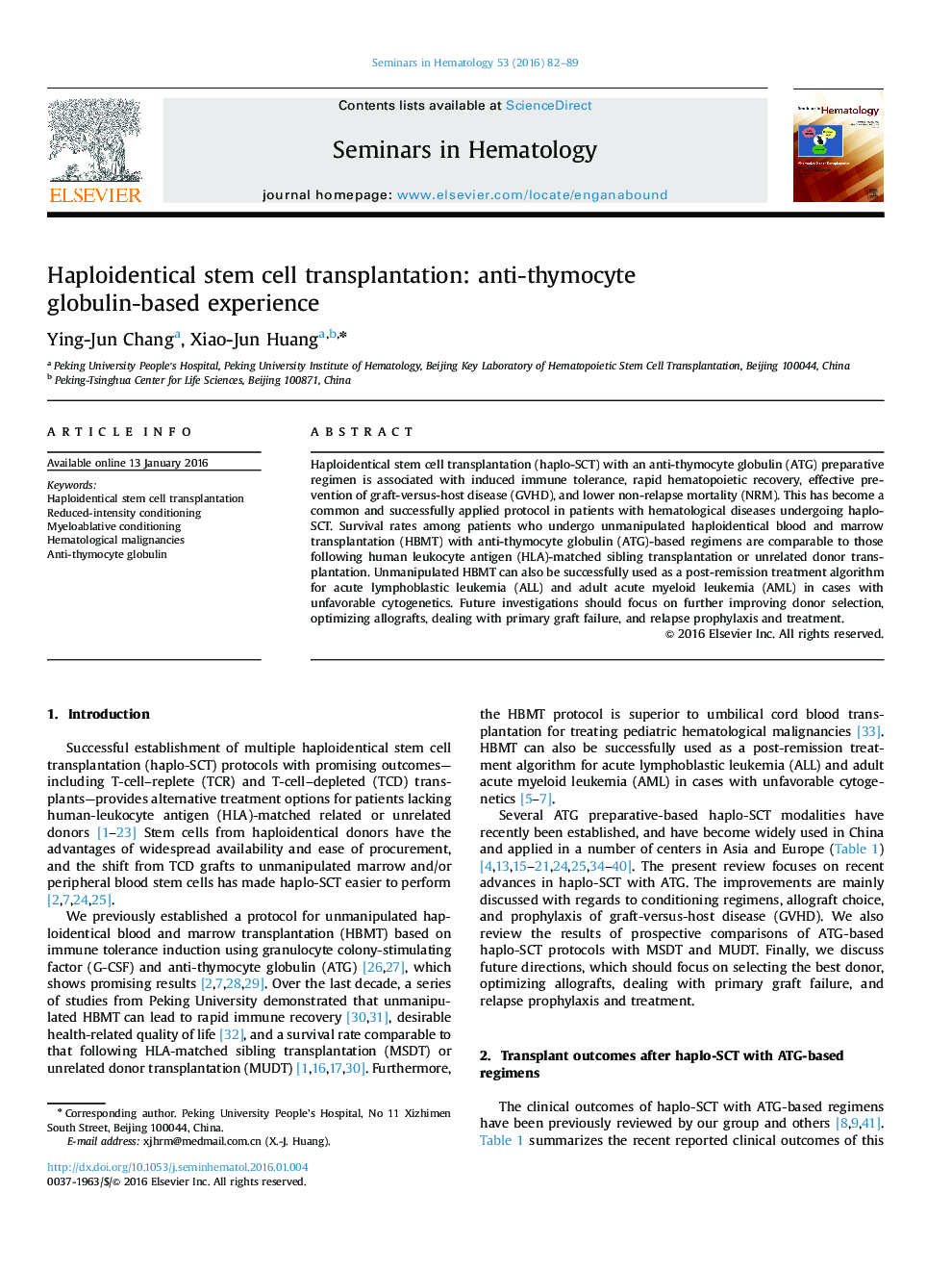| Article ID | Journal | Published Year | Pages | File Type |
|---|---|---|---|---|
| 3333382 | Seminars in Hematology | 2016 | 8 Pages |
Haploidentical stem cell transplantation (haplo-SCT) with an anti-thymocyte globulin (ATG) preparative regimen is associated with induced immune tolerance, rapid hematopoietic recovery, effective prevention of graft-versus-host disease (GVHD), and lower non-relapse mortality (NRM). This has become a common and successfully applied protocol in patients with hematological diseases undergoing haplo-SCT. Survival rates among patients who undergo unmanipulated haploidentical blood and marrow transplantation (HBMT) with anti-thymocyte globulin (ATG)-based regimens are comparable to those following human leukocyte antigen (HLA)-matched sibling transplantation or unrelated donor transplantation. Unmanipulated HBMT can also be successfully used as a post-remission treatment algorithm for acute lymphoblastic leukemia (ALL) and adult acute myeloid leukemia (AML) in cases with unfavorable cytogenetics. Future investigations should focus on further improving donor selection, optimizing allografts, dealing with primary graft failure, and relapse prophylaxis and treatment.
